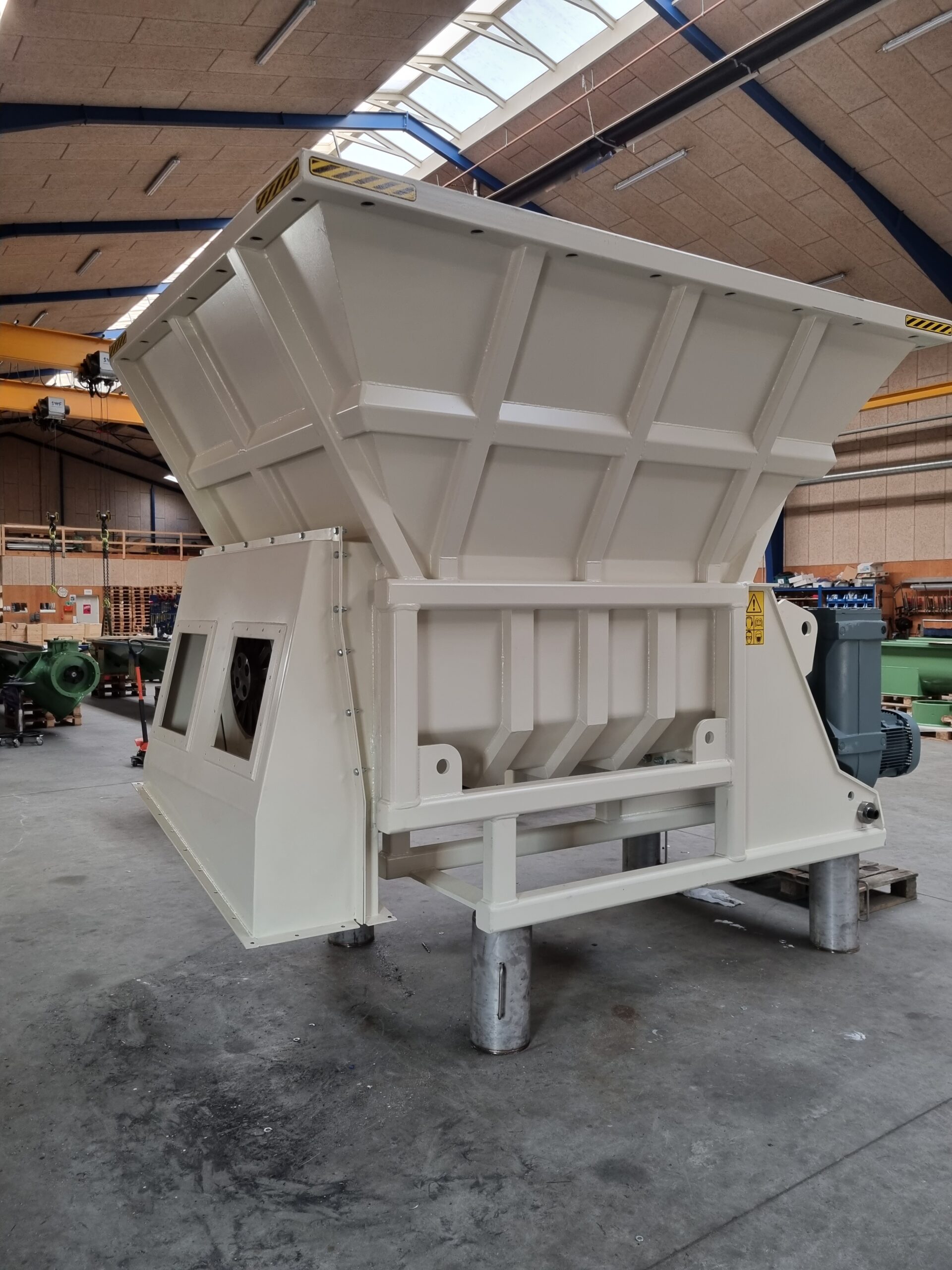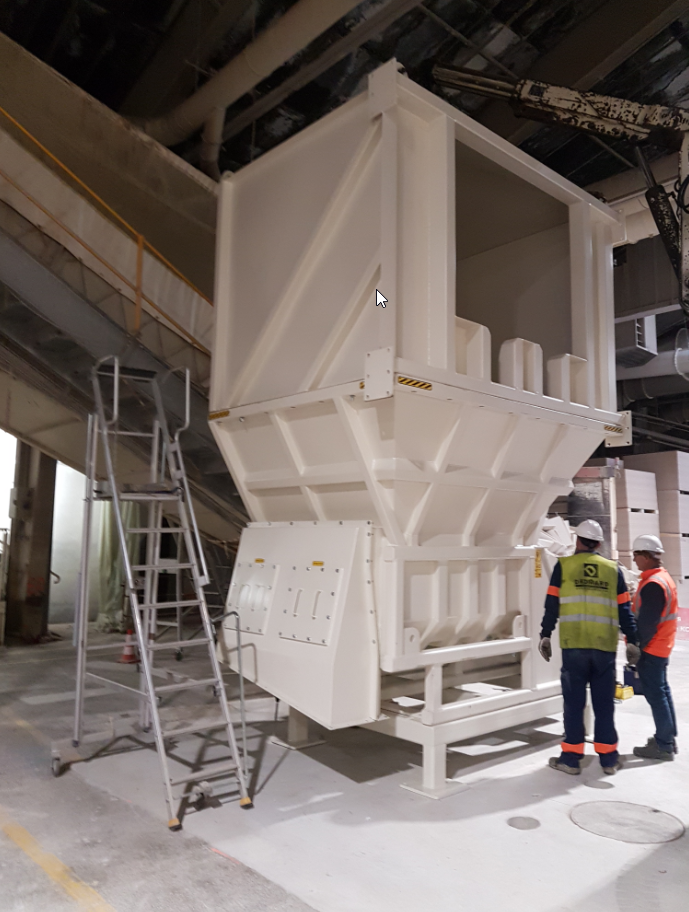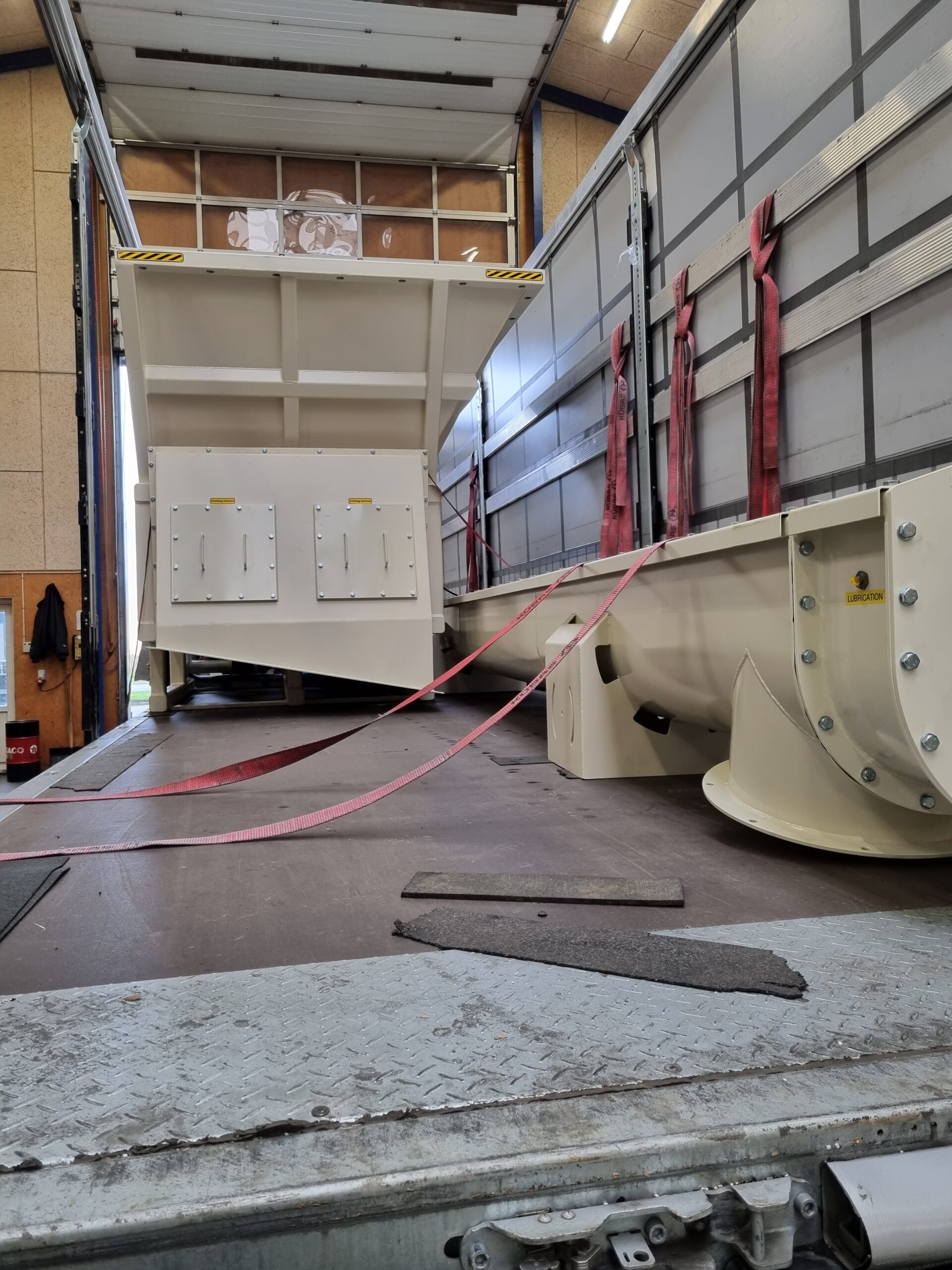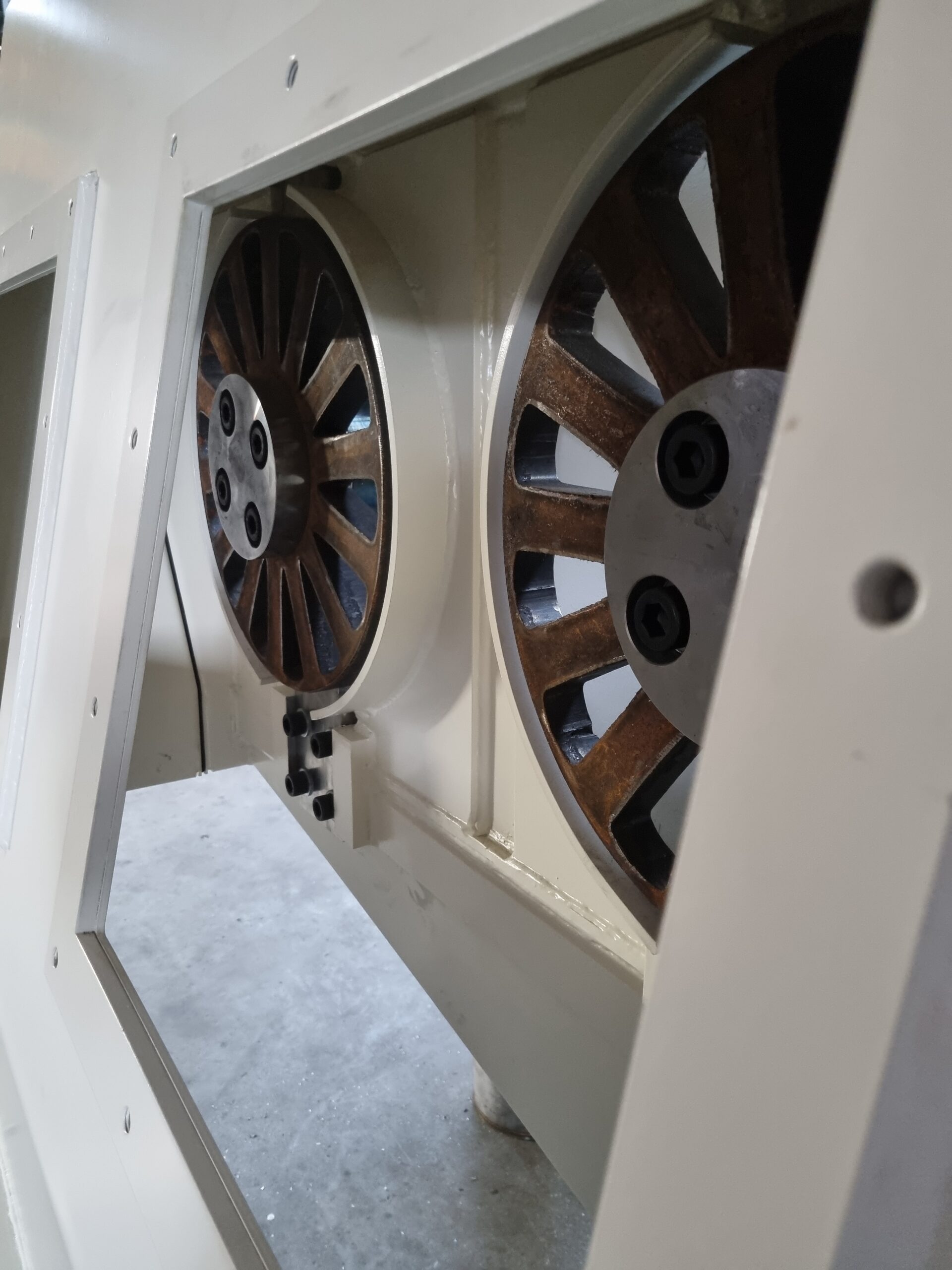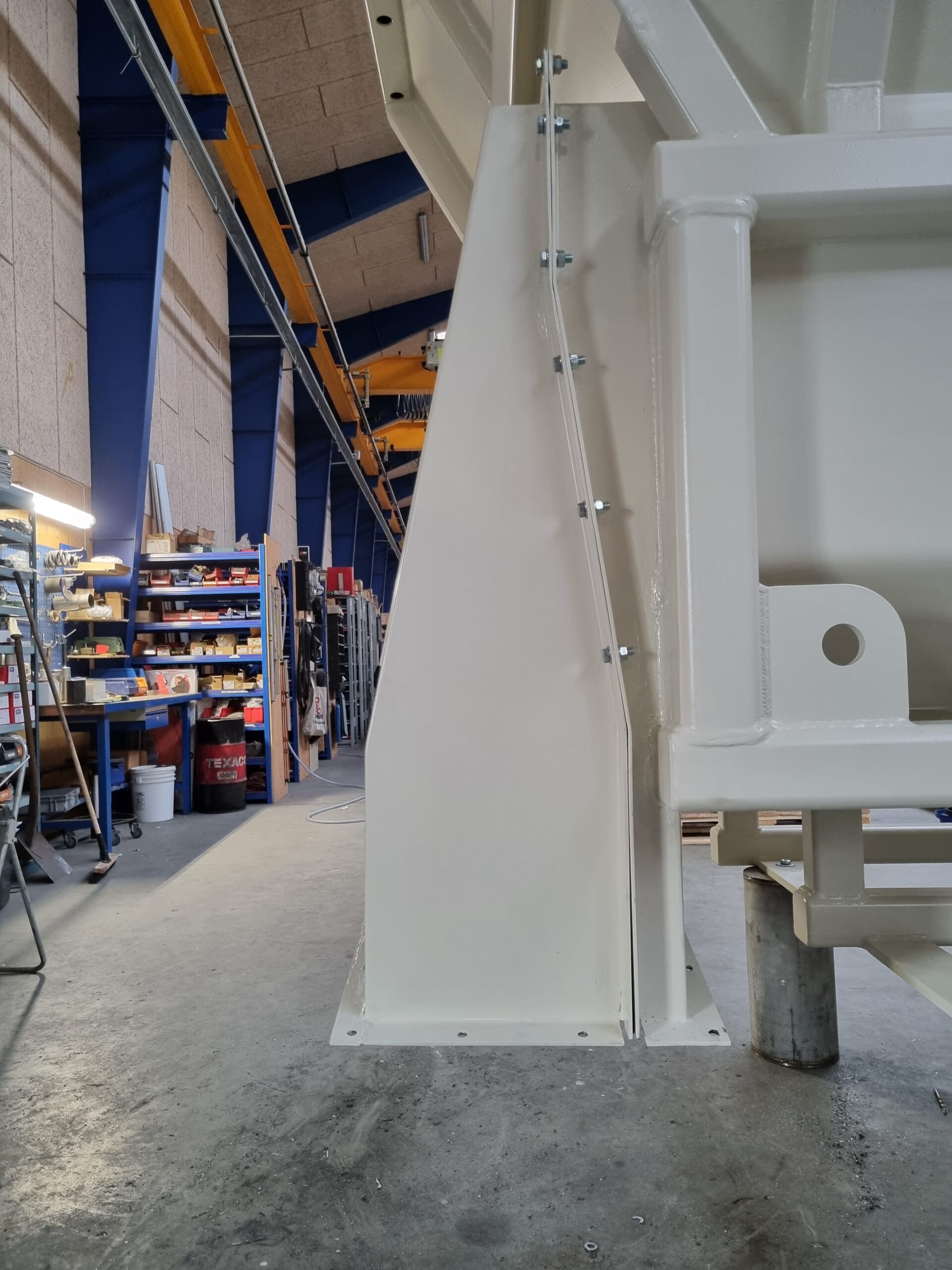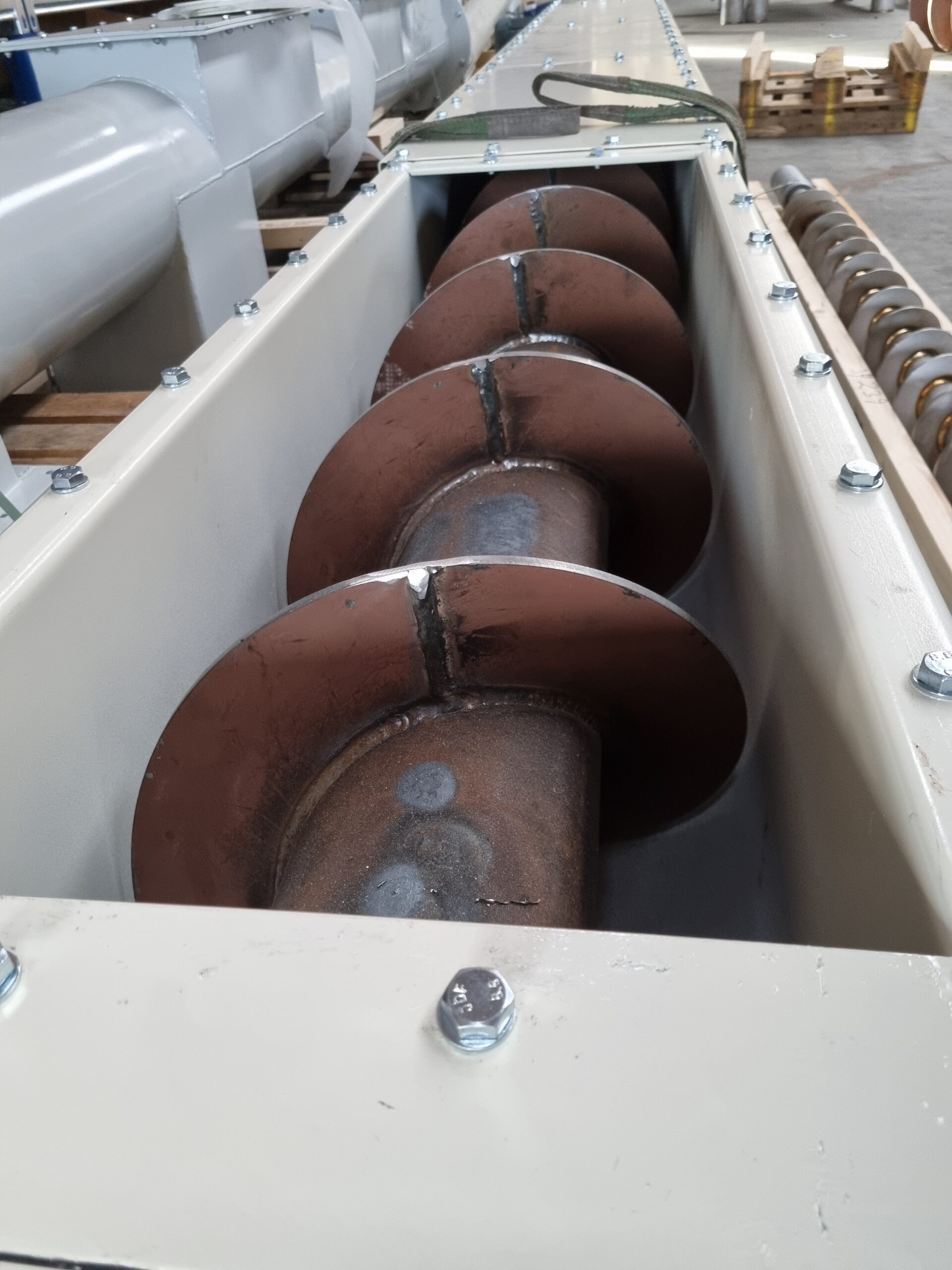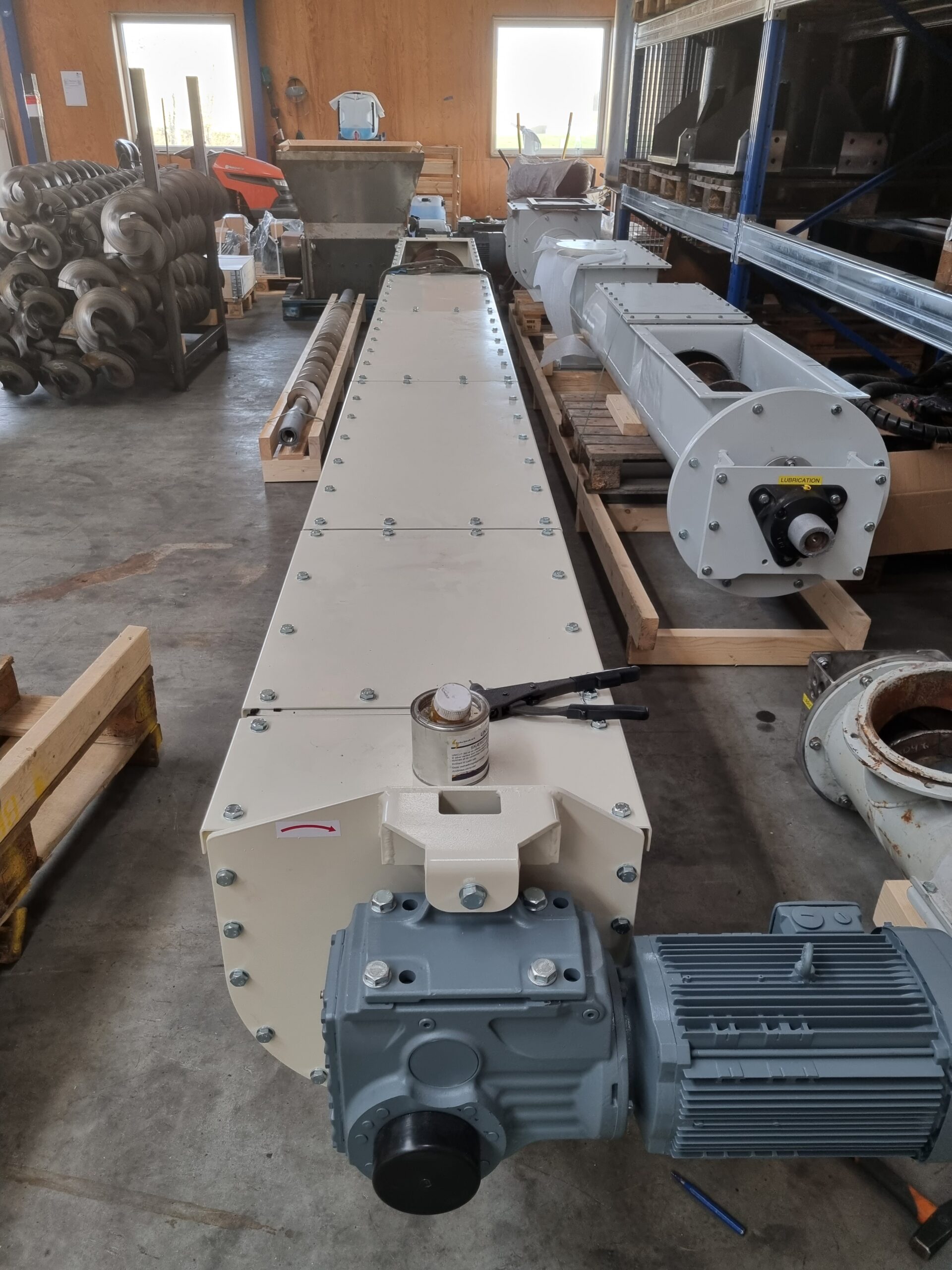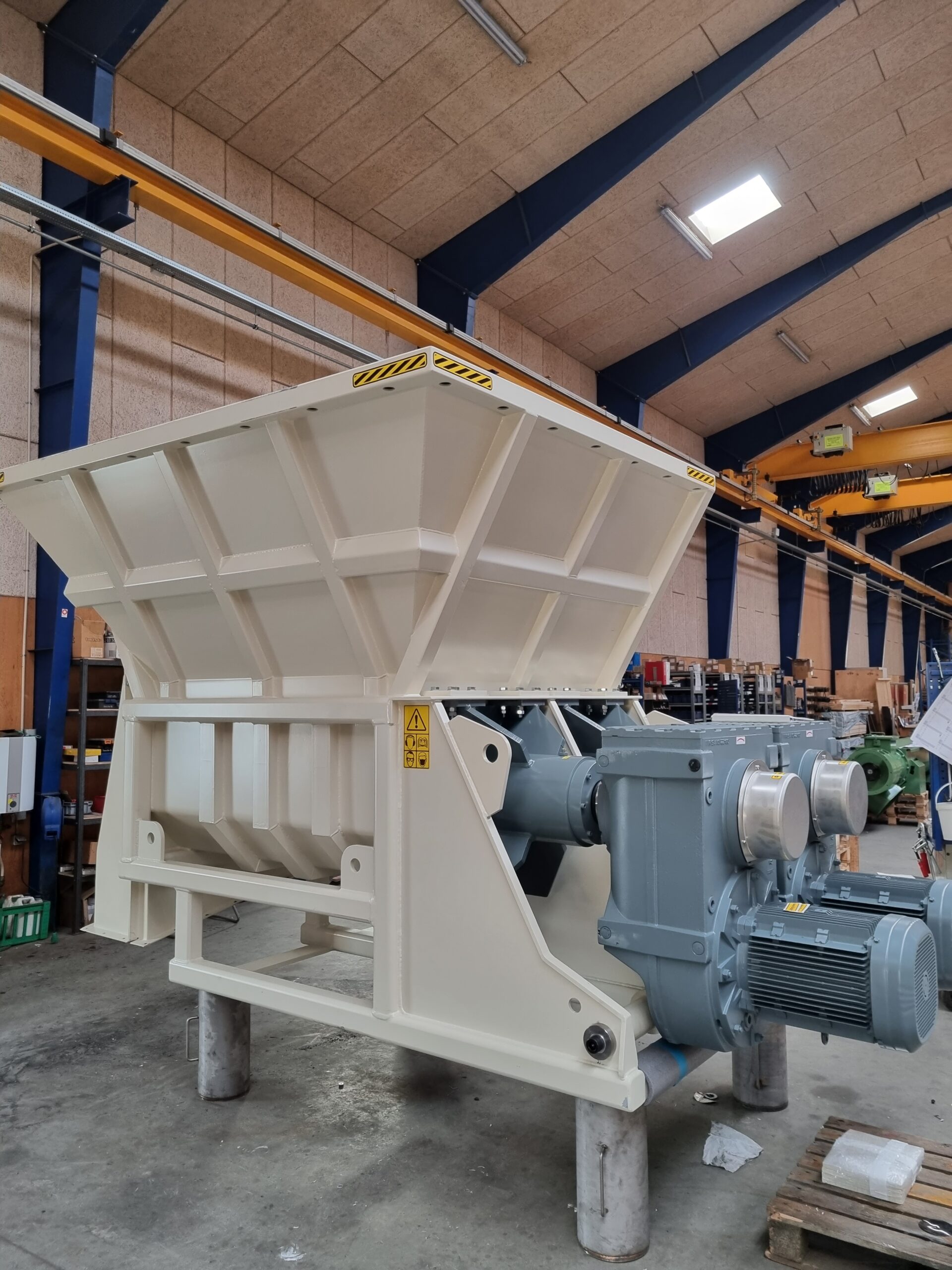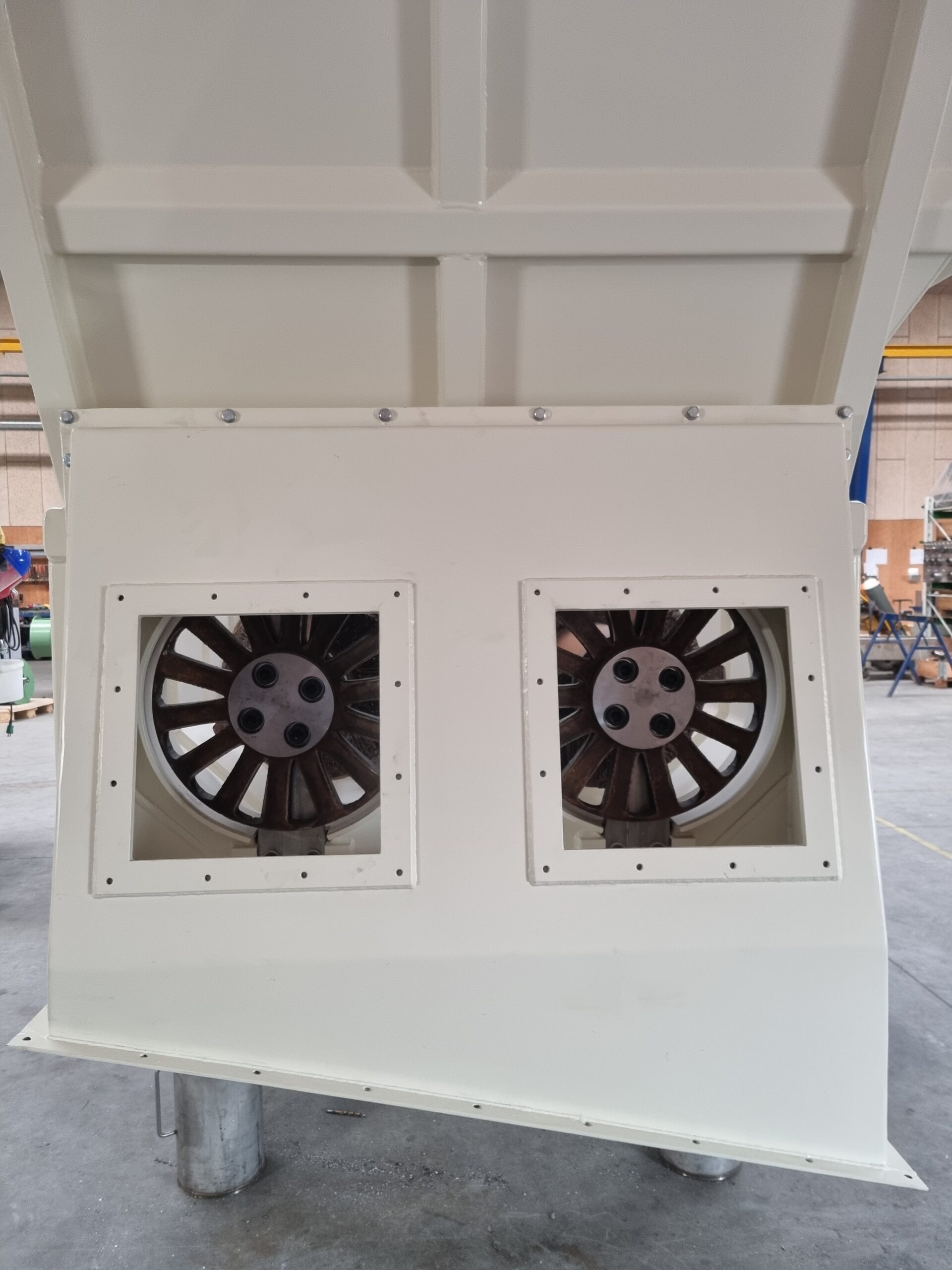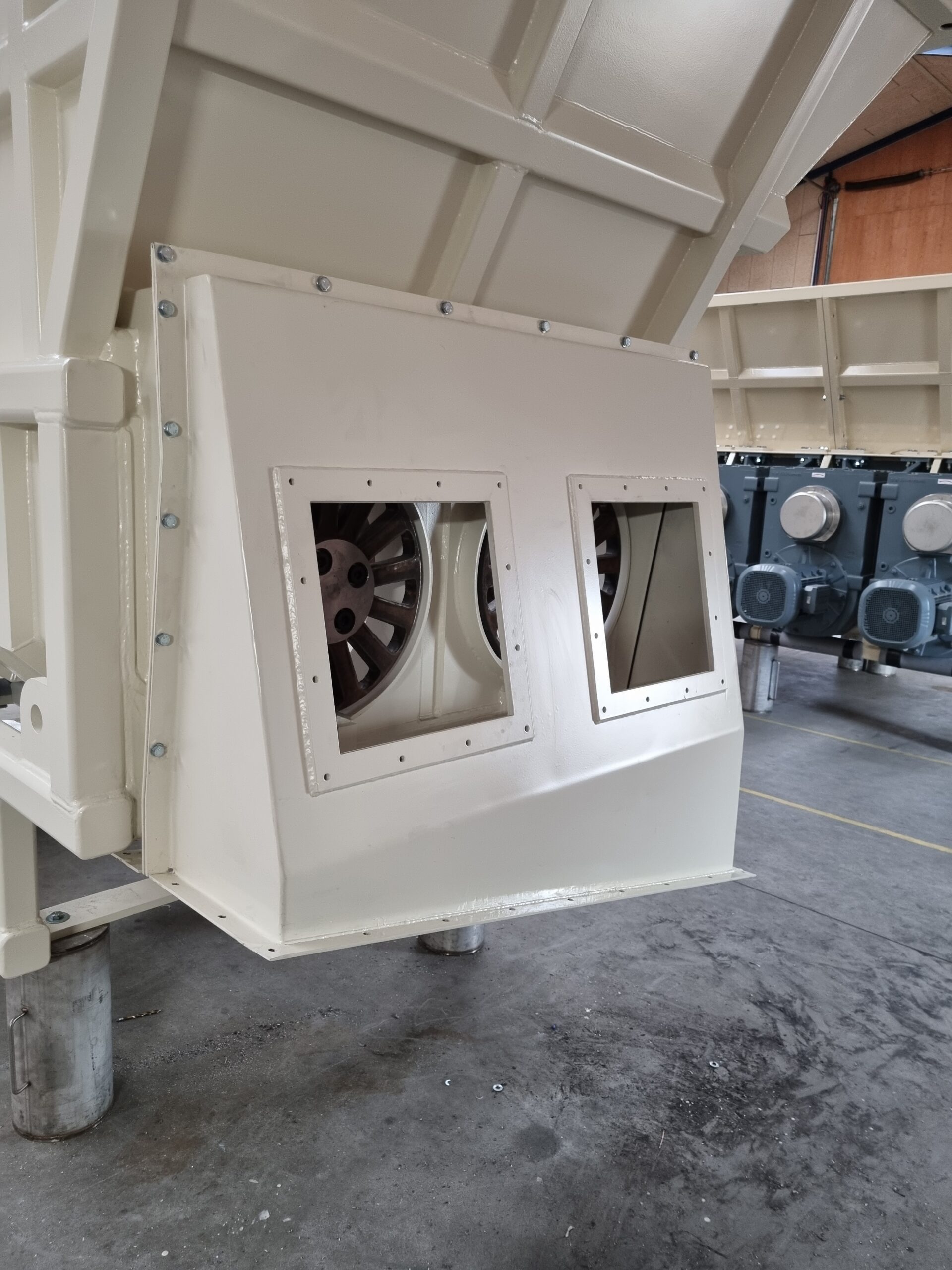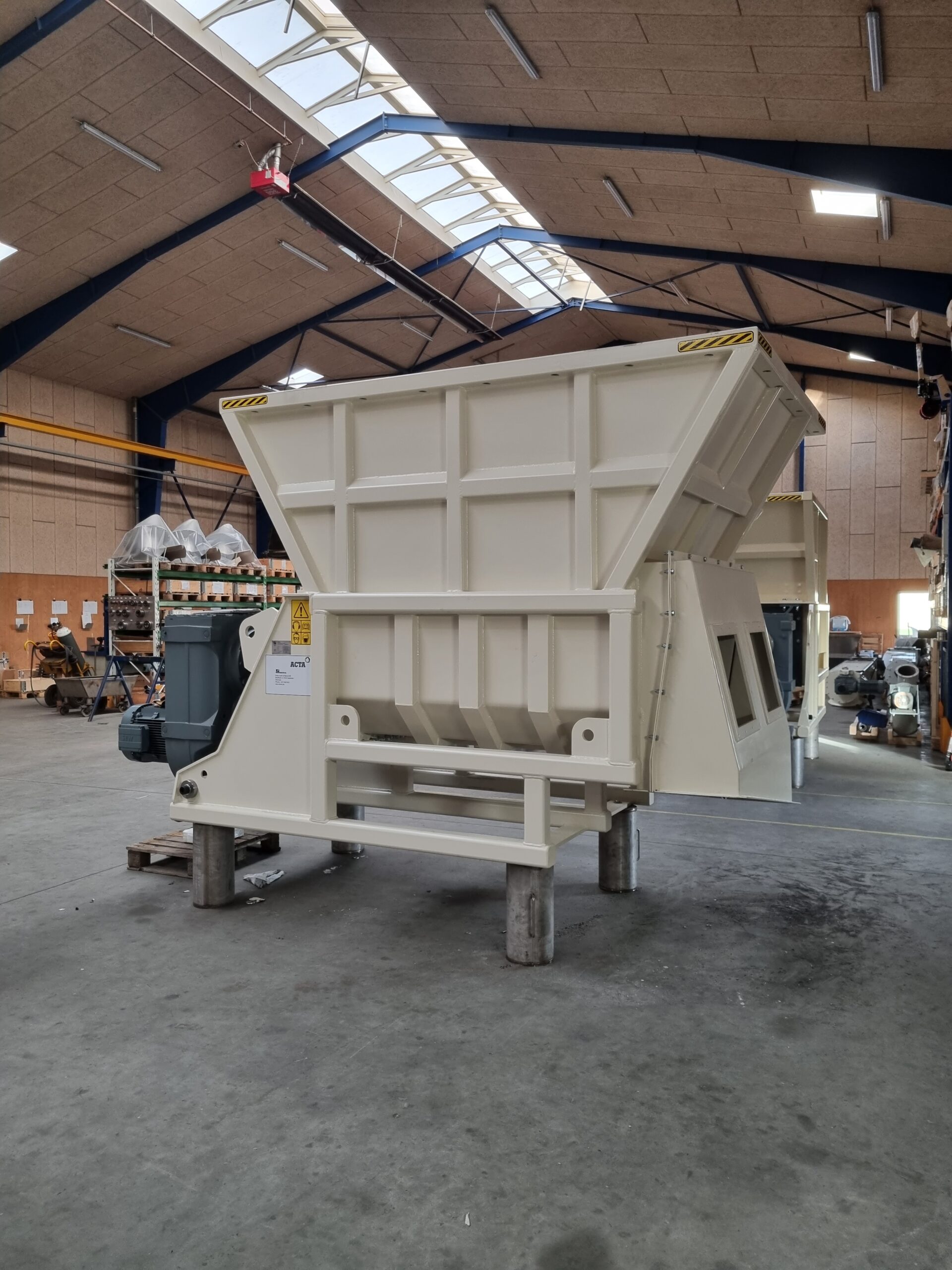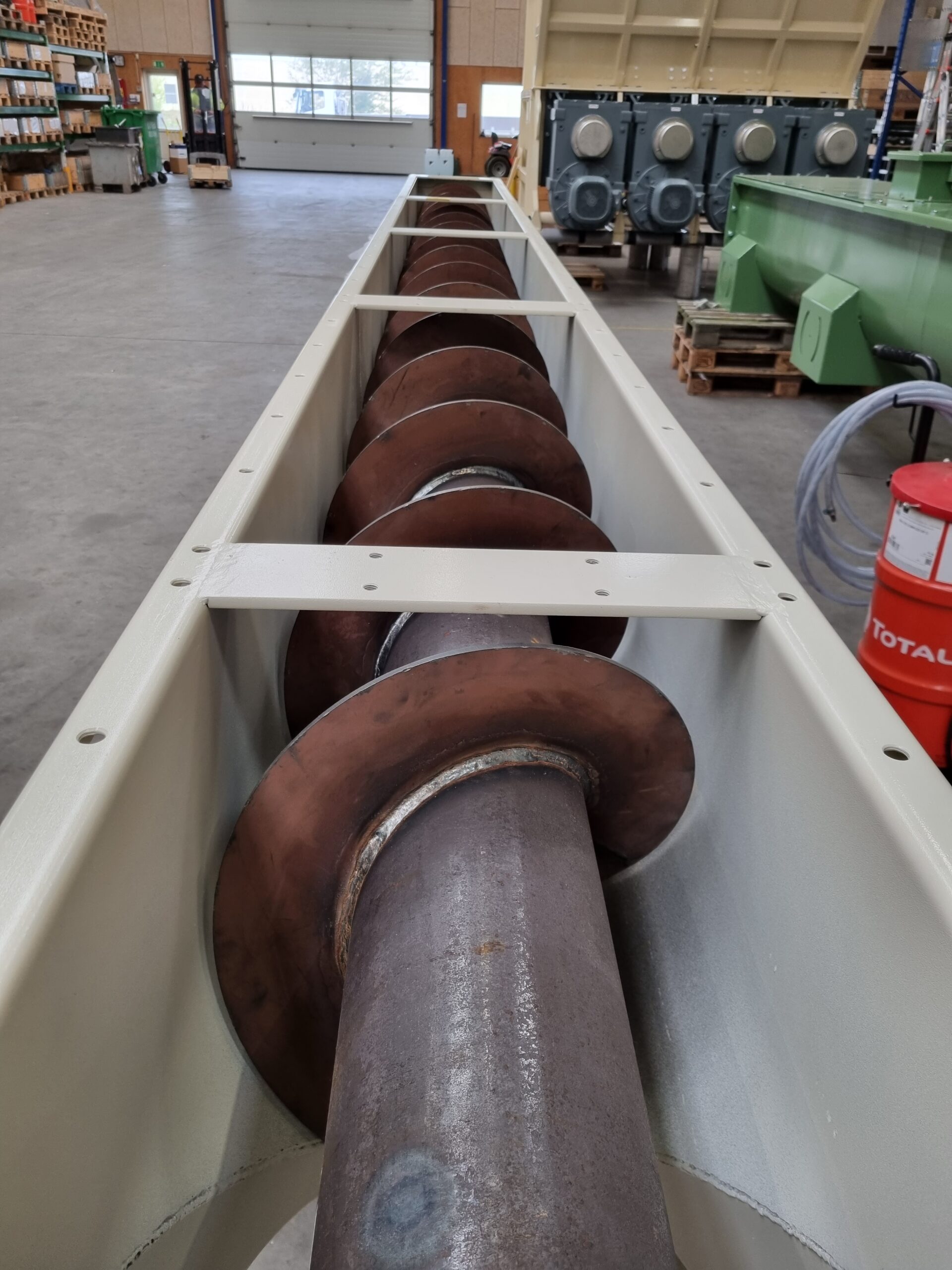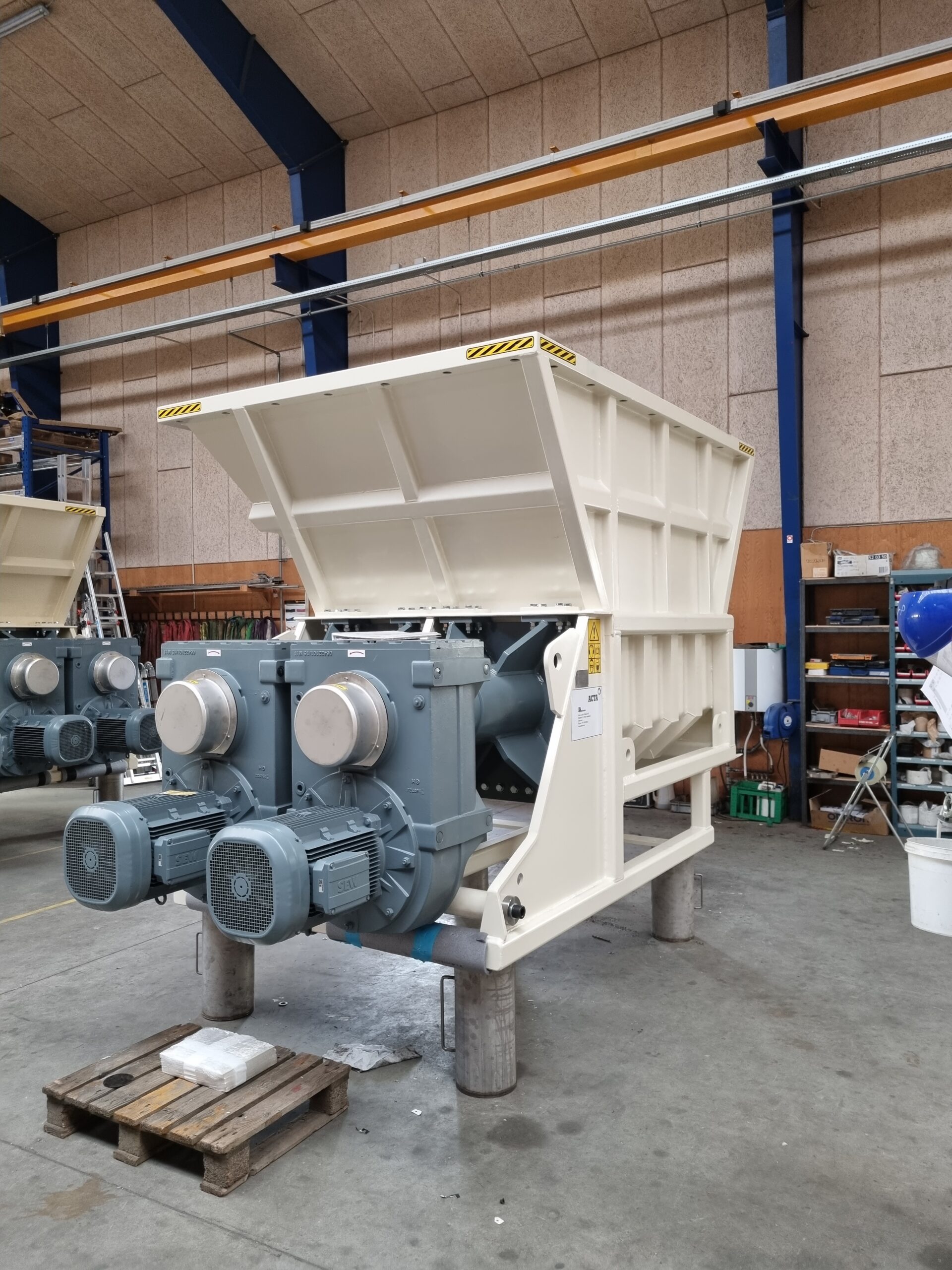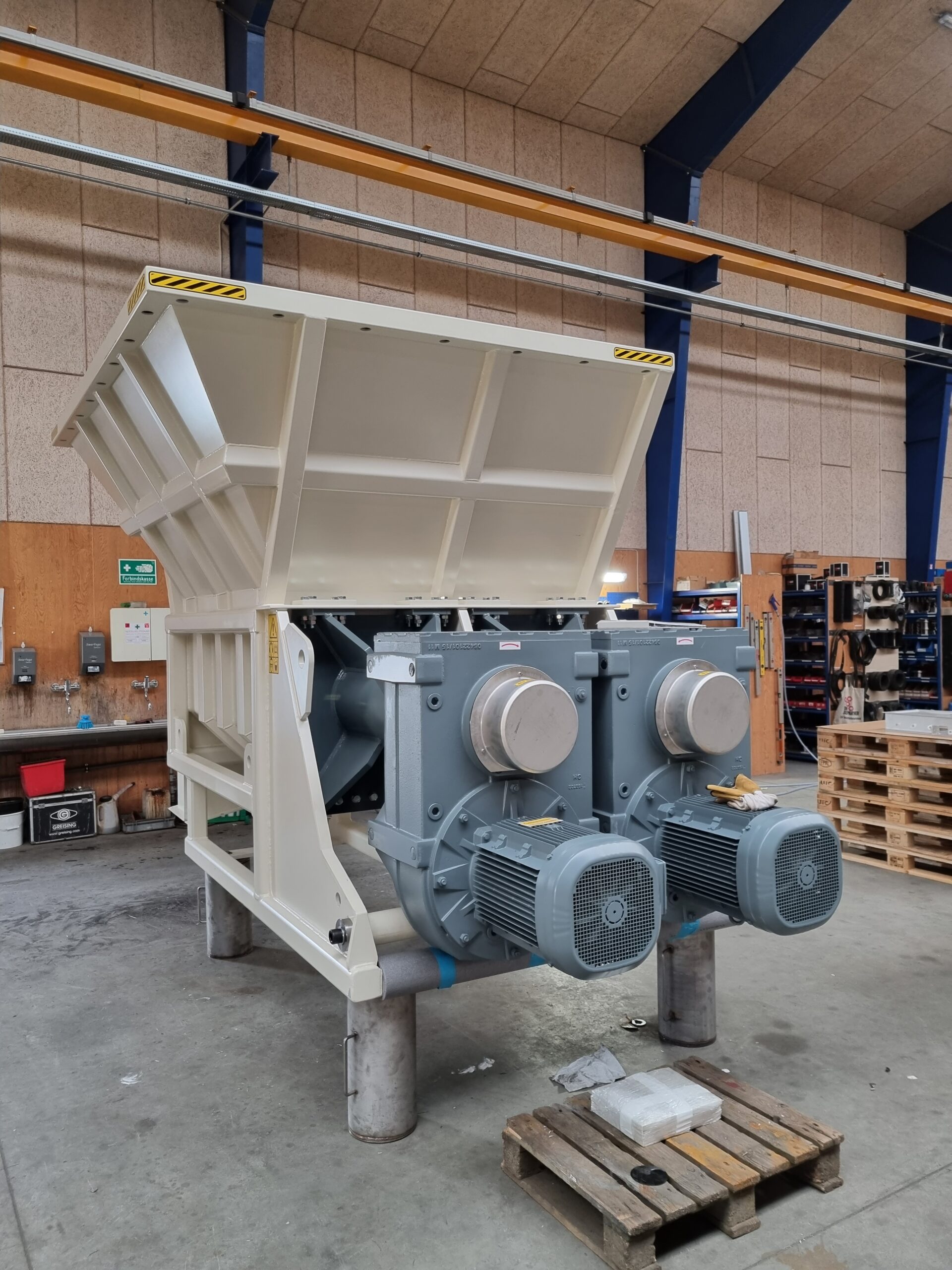ACTA 2-screw crusher for ceiling tiles- 33924
ACTA crusher for ceiling tiles recycling – 33924
This ACTA crusher for ceiling tiles recycling, are designed in a close cooperation with the client and their factory designers. This ACTA are made with a custom-made input hopper and outlet screw.
What is an ACTA?
An ACTA crusher is a low-speed, high-torque model, which means that the rotors only rotate with an average of 12 rpm. On the contrary, it puts out around 15.000 Nm on each rotor shaft. This gives a very reliable, strong, and long life-time machinery, with a low maintenance level in return.
How does an ACTA work?
The process of an ACTA is always depending on the material you feed into it. The input material itself, are the only thing that makes the grinding and separation effect, as the screws never touch or interlock with each other. This has a clear benefit, when looking at maintenance and lifetime of the machine. The input material will pre-break and be crushed by the screw rotors and simultaneously make a form for kneading effect, while moved around inside the hopper bin of the ACTA.
For this specific ACTA, the customer had several requirements for the final design, to fit perfectly into their production setup and demands. Following has been customized:
- Floor stand with a precise given height, so the overall height of the complete setup would fit the customers loading system.
- Filler hopper with 3 leaning sides and 1 vertical, for specific loading point and installation setup.
- A special and rather flat outlet casing, to incapsulate and protect against dust and debris from the rotating knifes in the outlet holes.
- An angled outlet screw conveyor, with required slope and specific length, so output drop into the next screw conveyor on site.
- A large filler hopper “hood” to again incapsulate dust and debris, where a filtration suction system will be installed on top.
Overall a very customized build, which shows the capabilities of our technical department and highly skilled workers in our production.
| Weight | 8.500 kg |
| Hopper inlet dim. | 2100x2700mm. |
| Hopper volume. approx. | 5,5 m3 |
| Outlet capacity
All outlet capacities are approximated and depends on working conditions and type of material to be processed. Please contact sales for ACTA for more exact information. |
2-5 ton/hour |
| Screw speed | Approx. 12 rpm |
| Motor power | 2 x 18,5 kW |
| Electrical conn. | 3×400 V – 50 Hz |
| Prefuse (App.) | 120 Amp |
| Applied steel in product | Carbon steel |
|---|---|
| House | Bin |
| Industry | Gypsum handling, Recycling, Waste handling |
| Product type | ACTA crusher |
| Surface treatment | Carbon steel – painted |
| Transported material | Gypsum, Insulation |
Related solutions
Related products
-
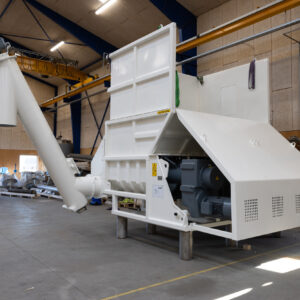
ACTA shredder for recycling of industrial PU panels – 32717
Read more -
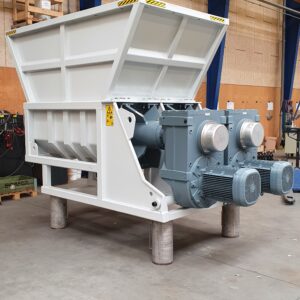
ACTA crusher for gypsum recycling – 33281
Read more -

33190 ACTA 2-screw Crusher – Special Filler Hopper
Read more -
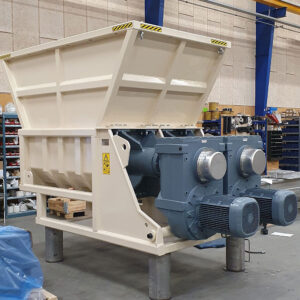
32433 ACTA 2-screw Crusher – Special Filler Hopper
Read more -
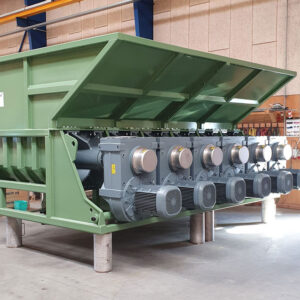
ACTA shredder for recycling of insulation wool – 31374
Read more -
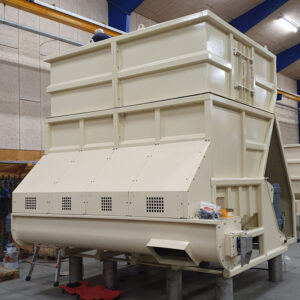
32438 ACTA 4-screw Crusher + add on solutions
Read more
BEMA A/S
Bredholm 3
6100 Haderslev
Denmark
CVR: 15525991
Contact
Phone: +45 74 52 16 21
E-mail: info@bema.as
